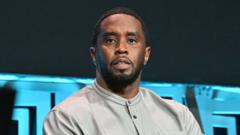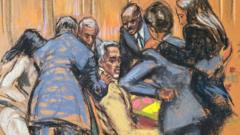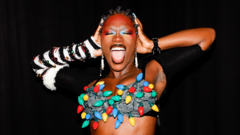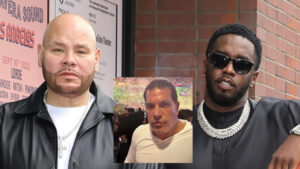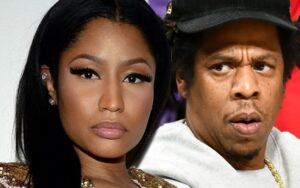The recent trial of Sean "Diddy" Combs has highlighted troubling power dynamics within the hip-hop industry, prompting calls for its own 'MeToo' movement. Survivors, activists, and industry insiders shed light on a culture that often silences victims, while noting the need for accountability and systemic change.
The Struggle for a Hip-Hop 'MeToo' Movement in the Wake of Diddy's Trial

The Struggle for a Hip-Hop 'MeToo' Movement in the Wake of Diddy's Trial
As Sean "Diddy" Combs faces legal repercussions, industry insiders examine the complexities of silence and power dynamics in hip-hop and the urgent need for change.
After years of allegations and a recent guilty verdict, Sean "Diddy" Combs has ignited discussions around the urgent need for a 'MeToo' movement tailored to the hip-hop industry. The spotlight now focuses on the pervasive culture of silence that protects powerful figures like Combs while leaving survivors vulnerable.
In so many accounts, Cassie Ventura's recent testimony in Combs' trial revealed a disturbing narrative of control, coercion, and abuse, with claims that Combs manipulated and abused her emotionally and physically throughout their relationship. Ventura's lawyer cited the trial as a wake-up call to understand the ramifications of powerful men evading accountability for their actions.
Despite the significant attention surrounding Combs' case, the music industry—particularly hip-hop—grapples with systemic issues that hinder the recognition and reporting of sexual misconduct. Industry insiders and survivors express frustration over persistent cultures of silence that stifle voices of potential victims. Cristalle Bowen, a Chicago-based rapper, emphasized that powerful figures in the industry often operate without scrutiny, perpetuating environments where abuse goes unchecked.
Advocates for change think now may be the moment for hip-hop to align with movements advocating for the eradication of sexual violence, akin to Hollywood's MeToo movement, which sought to confront harassment in the entertainment industry. Caroline Heldman, a co-founder of the Sound Off Coalition, argues that existing protocols in the industry often prioritize the protection of abusers over support for victims.
This sentiment rings true for many survivors, who face the risk of job loss and public backlash for speaking out against assault and harassment. Strict non-disclosure agreements (NDAs) add another layer of complexity—legitimate in some circumstances, yet sometimes misused to maintain silence around serious issues of abuse.
Amidst the challenges, recent legislative changes in states like New York and California provide a glimmer of hope, as survivors are given new avenues to voice their claims and seek justice for past abuses. However, the question remains whether the industry will undergo necessary reforms or simply remain as a parallel entity to broader societal movements.
As recent demonstrations supporting Diddy indicate, there is a danger in viewing such figures as unassailable, particularly within the African-American community, where economic successes are often fiercely protected. This dynamic introduces complexities in addressing misconduct without reinforcing damaging stereotypes or narratives that could further harm marginalized communities.
In conclusion, while recent allegations against prominent figures like Combs prompt potential shifts in conversation around consent and accountability, the hip-hop industry still faces significant barriers to reform. Activists insist that real change will only materialize when industry practices adjust to prioritize victim support and systemic accountability, thus paving the way for a genuine reckoning within hip-hop culture. Whether this moment leads to transformative action remains to be seen, but the demand for justice and change has never been more pressing.








